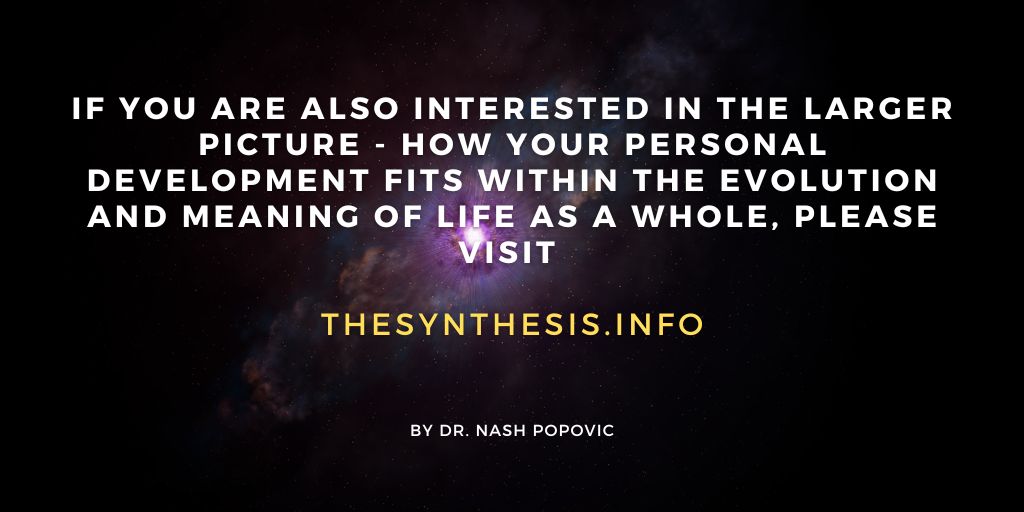31. The Future
The future influences the present just as much as the past.
Friedrich Nietzsche (19c German philosopher)
Awareness of the future strongly affects our lives. And yet, the future does not exist – it is our mental construct that may match to some extent with what will happen. The trick is to minimise discrepancies between these two. To do this, we shall examine some common ways of constructing the future (expectations, predictions and hopes), but let’s start with some reflections first.
Reflecting on the future
- To what extent do you think the future is determined? A fatalistic view is that everything is determined; on the other hand a sceptic would say that we can’t even be sure that the sun will rise tomorrow. Where do you stand in this respect?
- How do you feel about the future? Look forward to or dread it?
- Is the future more important, less important or as important as the past and the present for you?
- Beside your personal future, do you care about the future of your immediate surroundings, humankind or the planet?
You can use this exercise to clarify your view of the future:
Looking in to see out:
- Draw a road or roads that symbolise your future.
- When you finish, analyse your drawing. For example, a road can be straight or wavy, rough or smooth, busy or empty, going up or down. What does it tell you about how you see and feel about your future? There may be a few roads going in different directions. Where do they end? Which possibility do each of them represent? It is important to notice what is missing too (e.g. are there people, cars, trees?)
- After analysing the drawings, consider if you would like to change or add anything.
Expectations
When we think about the future, we often form expectations – beliefs that something is very likely to happen. They are necessary for us to function normally (it makes sense to expect that day will follow night, or that our home will be where it was on our return). Most expectations are neutral, but they can also be negative and positive. For example, you may dread starting your new job because you don’t believe that you are up to it or that your new colleagues will like you. Reversely, you may fantasise how great you are going to be and how everybody will love you. Both can have undesirable consequences: negative expectations may produce a high level of anxiety, be paralysing, and become self- fulfilling prophecies. Positive expectations can lead to wrong decisions, and if unfulfilled, to disappointment and frustration. There are two ways of avoiding the above:
- Reduce expectations: the old notion that happiness is inversely proportional to expectations and proportional to attainment is supported by both analysis and research. As one author summarises, ‘the only overall way to increase happiness is to meet or reduce expectations.’(1) So, if you expect that everybody will love you at your new job, it may be wise to bring it down a notch. The same applies to negative expectations: expecting that everybody will hate you can be reduced to expecting that some may not like you. •
- Avoid attachment: Imagining a better future can increase our motivation. However, if we do not turn that extra energy into action and let it fuel our fantasies instead, it can lead to an attachment to our expectations. This has some undesirable consequences: dwelling on an imagined world can be a temporary escape, but it means missing the present, missing real life. Furthermore, it leads to ignoring other possibilities and usually ends in disappointment. To avoid this sort of attachment, try to put the brakes on fantasising and investing emotionally into your expectations. Also, consider that something else may happen besides what you expect, which will be elaborated on further in our next topic.
Predictions
Ignoring the future can provide some respite (from worrying, for example), but it is not helpful in the long run. It was already mentioned that considering the alternatives is a way to reduce attachment and avoid disappointment. Foreseeing possible setbacks also increases coping ability and your chances to succeed. Everybody can be weakened by an unpleasant surprise. Predictions in this context refer to being aware of all realistic possibilities rather than expecting just one. If you put effort into predicting in advance anything that can reasonably happen you will always know what to do and how to react. Being prepared is often enough to put you in the right frame of mind to overcome, avoid or minimise the effects of an undesirable situation. This does not mean worrying or expecting misfortune, but thinking through various possibilities with a cool head, rather than getting emotionally attached to one of them. If you manage to do so, you can keep calm and at the same time be open to recognise and take an opportunity if it presents itself.
Predictions check: Recall a situation when you failed to make a correct prediction and analyse the reasons why this happened. For example, you’d thought a party was going to be great, and it was really a waste of time. Why had you got it wrong? How can you avoid this in the future?
What can help to get predictions right:
- Getting as much relevant information as possible.
- Thinking and reasoning can help too, but basing our predictions on feeling and emotions may not be a good idea because it is difficult to separate them from our preferences and desires that can skew our judgement.
- Intuition can be a source of prediction too, but like anything else, it is not infallible. Moreover, intuitive predictions seem to be valid only if the situation continues to develop in the same direction. So even if you have a strong hunch, the outcome may be different if the direction of the situation changes.
Hopes
Hopes are similar to expectations, but what we hope for is normally perceived as less certain, so it is easier to avoid attachment. Even so, hopes are more in the sphere of feelings than thinking, which is why they have a strong effect on motivation, performance and coping. It is well known that even extremely adverse situations can be endured if there is hope. Losing hope, on the other hand, may lead to losing motivation to do anything. Some even make a link between the loss of hope and depression. So, although positive expectations that we are attached to may lead to disappointment, nurturing hope is important. Even if you are on your deathbed you can still hope (that there is afterlife – or that there isn’t). Let’s see now how we can put the above together.
Prepare for the worst and hope for the best
Combining predictions (preparing for whatever may happen) and hope seems to be the best way forward and is well expressed by the above saying. ‘Prepare’ means thinking about what can go wrong and trying to find solutions in advance. This can give you confidence that negative possibilities can be overcome. Once you are prepared well for whatever may come, you can focus on your hopes and keep them high! This is how we can make our mind and heart work together – different tasks, but a shared direction. The following exercise can help with this:
Back to the future consists of two parts:
- Write a letter to your future self. It can be you in a near future (e.g. in a few weeks), or in a distant future (e.g. in a few years or decades). The letter should be about what you would like your future self to know about your life now and about your hopes for the future.
- When you finish, imagine yourself in the future. What would the future you say to you now? What needs to happen or what do you need to do now in order to make your hopes come true?
(1) Barrow, R. (1990) Understanding Skills. Ontario: Althouse, p.108.

